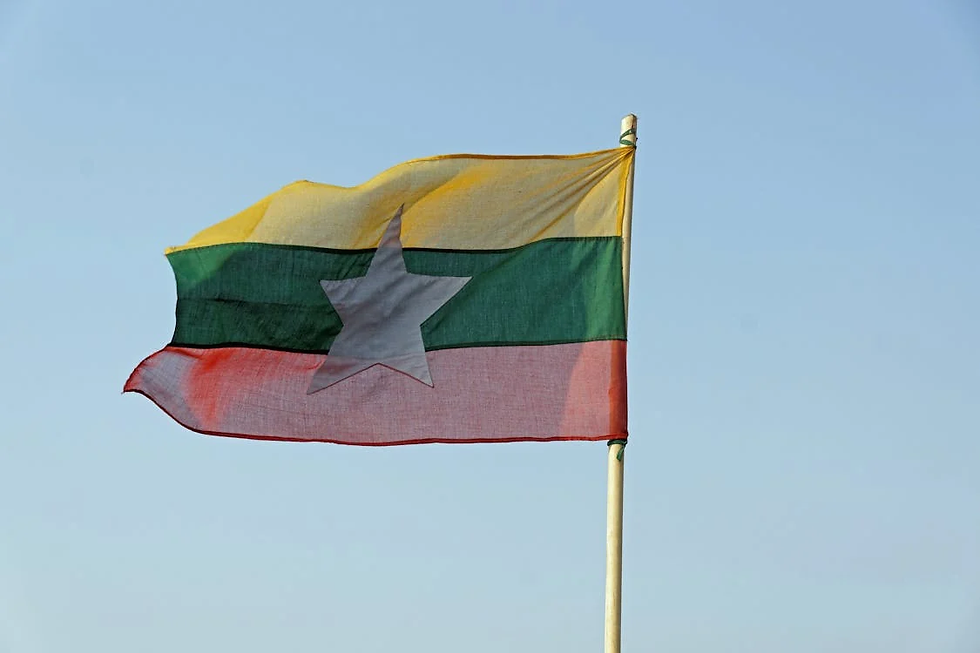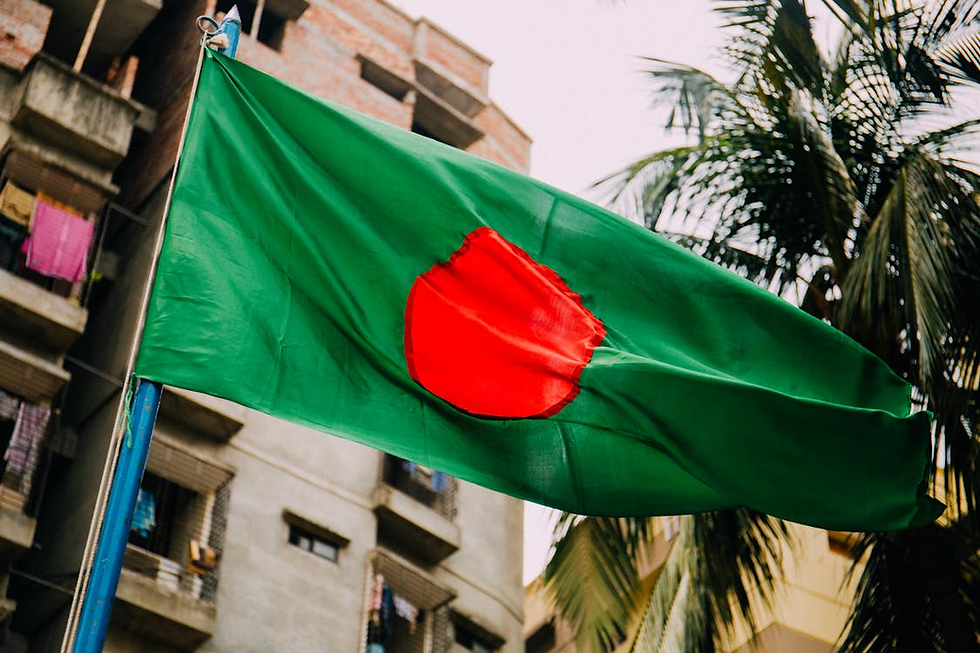Myanmar Coup: What Next for Aung San Suu Kyi?
- Hafiza Samath

- Feb 4, 2021
- 3 min read
Updated: Dec 23, 2024
Monday morning started frantically with a military coup in Myanmar - also known as Burma. The Myanmar military, known as Tatmadaw, claims that the coup is in fact constitutional under Section 417 of the Constitution of Myanmar. The military reportedly wants to investigate alleged fraud in the election that took place last year. The election saw a great victory for Aung San Suu Kyi against the military’s electoral proxy - the Union Solidarity and Development Party (USDP).
The military made a statement, through military-owned Myawaddy TV, that the Vice President of Myanmar-Myint Swe, will be the interim president. It was also announced that power over "legislation, administration and judiciary" resides with military chief Min Aung Hlaing.

The military arrested Aung San Suu Kyi and other democratically elected leaders. They also declared a state of emergency, stating that the army will be in power for 12 months. The National League for Democracy, of which Suu Kyi is the leader, describes how she was taken into custody on Monday prior to parliament’s proper opening. Two days later, Suu Kyi was accused of illegally importing walkie-talkie radios. Myanmar Now reported that Myanmar soldiers found 10 of the walkie talkies in its de facto leader’s estate.
On the second day of the coup, the streets of Myanmar looked eerily calm. Anxiety now engulfs the Burmese people. With Myanmar’s history of having been ruled by the military for nearly half a century, journalists, academicians, politicians, and activists are on edge. These were the people that were locked up and tortured during the years of military rule in Myanmar.
Myanmar had experienced two coups prior to Monday — one in 1962 and the other in 1988, and military rule continued until 2011. Many civilians took precautions buying extra groceries, and withdrawing cash from ATMs. Analysts suggest that social media accounts might be hacked and taken over to encourage further military force in the country.
UN special rapporteur Tom Andrews emphasised in his tweet that "Now, more than ever, we must act," calling for sanctions, and an arms embargo on Myanmar. The author and historian Thant Myint-U made a statement on Twitter: “The doors just opened to a very different future. I have a sinking feeling that no one will really be able to control what comes next. And remember Myanmar’s a country awash in weapons, with deep divisions across ethnic & religious lines, where millions can barely feed themselves.”
Asia advocacy director at Human Rights Watch, John Sifton, said “The military junta that ruled Myanmar for decades never really stepped away from power in the first place,” He also said that “they never really submitted to civilian authority in the first place, so today’s events in some sense are merely revealing a political reality that already existed.”
Many Burmese people are devastated with the sudden coup, and find that their long battle to achieving democracy has been lost in the blink of an eye. The BBC interviewed a 25- year-old resident, who explained that "Waking up to learn your world has been completely turned upside down overnight was not a new feeling, but a feeling that I thought that we had moved on from, and one that I never thought we'd be forced to feel again."
Workers at one mobile network resigned, objecting to their employer’s military connections. In addition to that, medical staff at Yangon General Hospital in Myanmar held up their three-fingers in a defiant salute. The famous three-finger salute, or the Serbian salute, from The Hunger Games movie has also previously been used by the Thai and Hong Kong protesters.
Aung San Suu Kyi has marred her international reputation by defending Myanmar against genocide allegations and her “ethnic cleansing” of the Rohingya Muslim minority. However, she is still known as the mother of Myanmar by the Burmese people.

_edited.png)



Comments